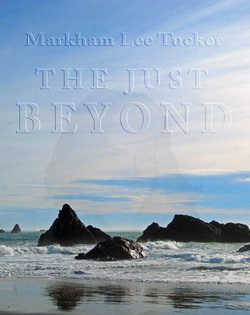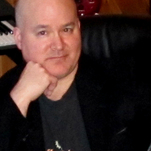Inquiring minds want to know. Lazy writers won't tell you.  What generated the basic premise in The Just Beyond? Frustration. There has been plenty of fiction about the Afterlife, but it tends to sort into three categories. The first, let's make up a term, is "gothic immortality." These are the vampire and similar works of Anne Rice, Twilight, Underworld, Being Human, and so on. They're hugely popular and definitely entertaining, but they don't really define an Afterlife per se. What they define is states of eternal life, whch is not the same thing. And while they often include a tremendous amount of history and march to a consistent set of "rules", they typically do not elucidate what I consider the most important question: why. Not how they came to be what and where they are; that is universally covered. What's missing is an overarching explanation of why they should exist at all. The second category is what let's call "Earthlike." A prime example is the movie Defending Your Life, where Albert Brooks goes on trial in an environment indistinguishable from the mortal world and winds up running after a bus bound for Heaven, which itself drives into that same kind of mist as described below. The typical proposition is that the Afterlife only seems grounded in the familiar because the characters aren't able or ready to grasp its reality. They're seeing a metaphor they can understand and not the true environment. That I could almost buy, but what is the reality? Inquiring minds want to know. Lazy writers won't tell you. Last and most prevalent is the "fog of death", a.k.a cheating. :) The Afterlife is barely shown if at all. This lets the writer off the hook from depicting a complex Afterworld or explaning why it is as it is. Dead characters disappear into mist, fade out, or simply vanish, giving little or no glimpse of what lies beyond. Daniel Radcliffe does this in the last Harry Potter movie and his later The Woman In Black. (By the way, watch the 1989 original of that movie if you want to experience the prickliest feeling you've ever had at the back of your neck .) There are at least two reasons for this. First, to define the Afterlife in rich and specific detail, writers run the almost guaranteed risk of alienating or offending potential readers who consider their own vision of life after death to be inviolate. Second, working out the details of a selt-consistent Afterlife is hard. What exactly is required to get in? Do people sleep, eat, or have sex? If so, why? What other things do they do? Eternity is a very long time. How long would you be content to do nothing but flit about in the clouds on angel wings visiting departed family and friends - a year? 10 years? 100? A million? A billion? How long would it take to pursue your every aspiration, and once you're finished, what would you do then? These questions are left begging in most Afterlife fiction, but they can be answered. It just takes courage: the willingness to develop a coherent image and then bear the bitter assault of a multitude of offended detractors. Richard Matheson's What Dreams May Come gives a complete, consistent, and rational explanation (as will the Beyond Trilogy by the end; the first book has only cracked open the topic), and I respect it immensely. None of its critics, when you weigh them objectively, have a vision as logical or robust. The Afterlife in The Just Beyond overlaps some of Matheson's picture, though not so much that originality is lost. I wish there were more like it. I don't believe that Matheson's concept or mine literally reflect reality, but they might. Isn't it a good thing to have such possibilites afloat in the marketplace of ideas? - Mark
1 Comment
|
Once upon
|
| The Just Beyond |
|

 RSS Feed
RSS Feed
